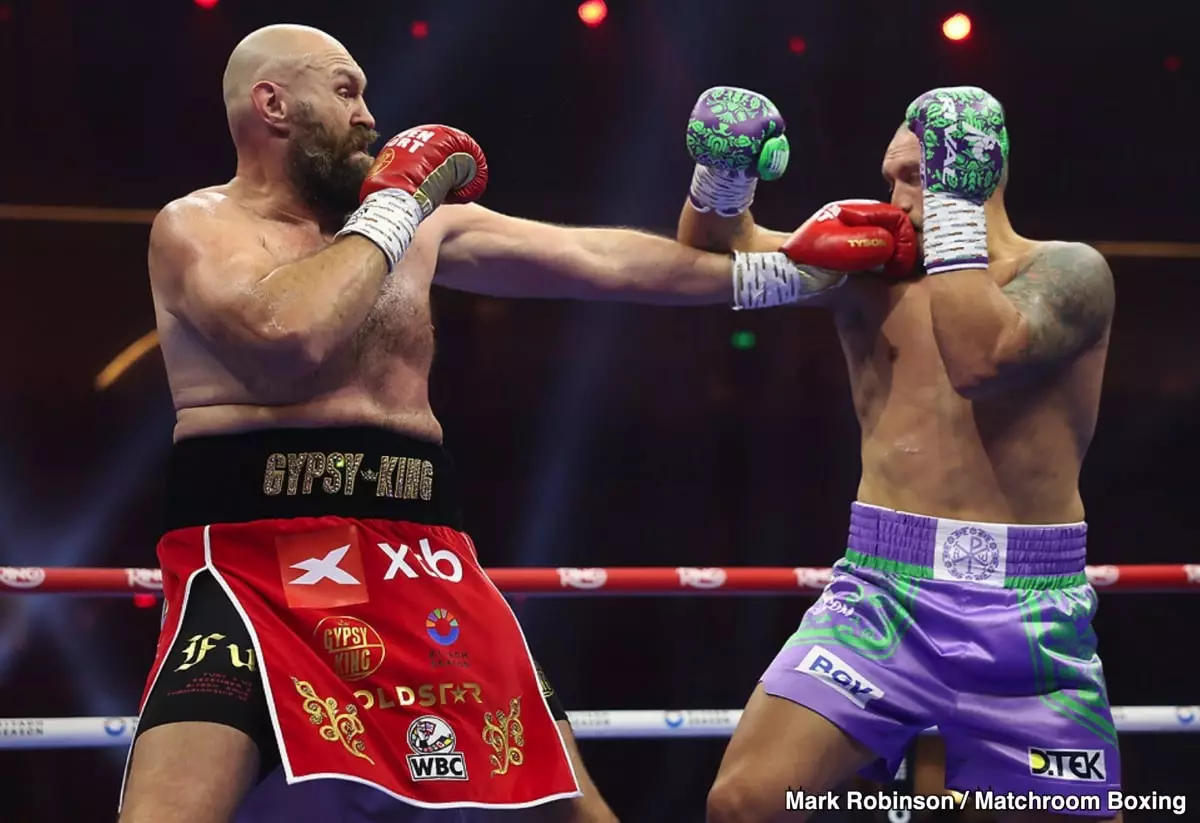Throughout the decades of professional boxing, the debate over retirement has consistently surfaced, particularly for fighters who have faced substantial challenges in the ring. This discourse has gained momentum with the recent thoughts expressed by former trainer Teddy Atlas regarding heavyweight champion Tyson Fury’s future. Following Fury’s notable defeat against Oleksandr Usyk, Atlas has boldly proposed that the 36-year-old fighter should consider stepping away from the sport altogether. However, as compelling as this argument may be, it opens up a broader discussion about the nature of competitive combat sports and the implications of retiring at the peak—or, in some views, the decline—of one’s career.
Tyson Fury’s career has been colored by iconic matches and formidable opponents. Atlas highlights the toll that numerous grueling battles have exacted on Fury. His three encounters with Deontay Wilder alone were brutal, physical confrontations that not only demanded peak athletic performance but also resilience and heart. The wear and tear from such clashes can manifest long after the final bell, leaving fighters vulnerable to both physical and psychological decline. Atlas argues that having endured these wars, Fury should consider the prospect of leaving the sport before the damage becomes irreversible. But is it truly possible for a fighter to recognize the right time to retire amidst the allure of potential lucrative fights and public adoration?
In assessing Fury’s loss to Oleksandr Usyk, it’s essential to consider the quality of the opponent. Usyk, a skilled and agile fighter with a profound understanding of boxing strategy, proved to be a formidable adversary who exposed Fury’s limitations. While many fans might have hoped for a different outcome, the reality is that Usyk’s significant boxing acumen and tactical approach were key elements that led to Fury’s defeat. This is a crucial point of Atlas’s argument, suggesting that Fury should reassess his standing in the heavyweight division. The loss indicates a delineation between competing against seasoned fighters versus prevailing against lesser opponents, a line that seems increasingly blurred for Fury.
Another critical observation made by Atlas is the concept of “greatness” in boxing. While many ardent fans view Fury as a notable figure within the sport, Atlas makes a compelling case that labeling him as a “great” is overstated. In truth, Fury’s most acclaimed victories—including against the aging Wladimir Klitschko—come into question when examined under the lens of what constitutes greatness. Atlas is keen to emphasize the difference between a well-managed fighter and a legendary champion. The truth may lie in the fact that Fury’s impressive record, while admirable, doesn’t measure up to the legacy left by icons such as Muhammad Ali and Joe Louis.
Despite the weight of Atlas’s arguments urging retirement, an undeniable reality remains: the financial incentives for Fury to extend his career are significant. The allure of major paydays—especially with prospective fights against high-profile competitors like Anthony Joshua—poses challenges to the idea of retirement. As long as substantial checks from promoters like Turki Al-Sheikh are on the table, the likelihood of Fury walking away becomes slim. The question must then be raised: how does one balance financial gain with personal legacy and health in such a demanding sport?
The question of whether Tyson Fury should retire from boxing remains embroiled in complexity. While Teddy Atlas’s insights illuminate the potential pitfalls of overstaying in the ring, the realities of financial gain, personal legacy, and the ever-present thrill of competition cannot be ignored. As analysts and fans observe Fury’s next moves with keen interest, one hopes that he carefully weighs not just the prospects of fame and wealth but also the long-term consequences of his choices within the unforgiving arena of professional boxing. In the world of sports, perhaps the hardest-fought battles are not always the ones waged in the ring but rather those in the mind that lead to pivotal decisions about career and legacy.

